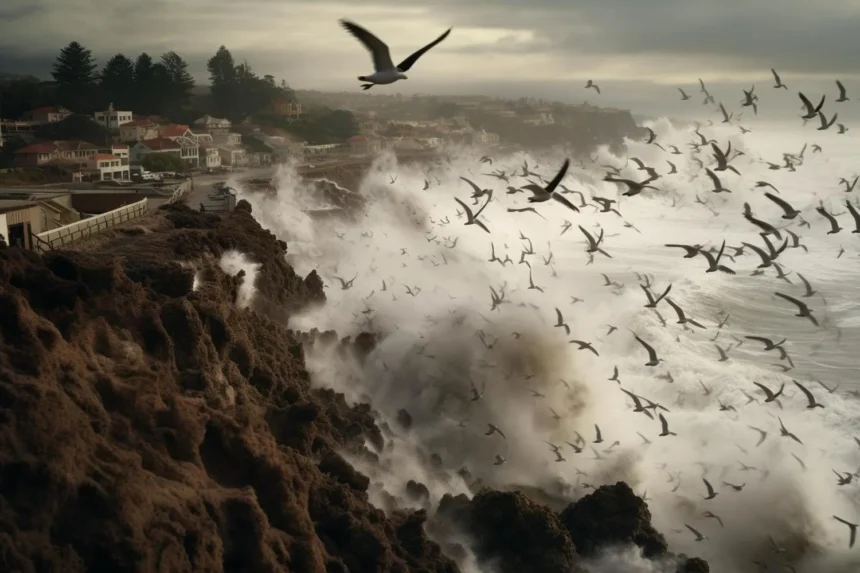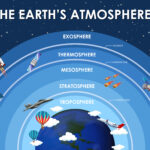Introduction
Humans have long been fascinated by the notion that animals possess the unique capability to sense impending disasters. Throughout history, anecdotal accounts and observational evidence have hinted at animals behaving unusually right before major natural calamities. Today, researchers around the globe are delving deeper into this intriguing question: can animals predict disasters?
Historically, societies across diverse cultures, from Ancient Greece to Imperial China, documented animal instincts signaling upcoming catastrophes. Observations include dogs barking uncontrollably before earthquakes, elephants fleeing coastal areas ahead of tsunamis, and birds altering migration patterns in anticipation of hurricanes. According to recent scientific research, these wildlife behaviors are more than coincidental; animals indeed demonstrate a heightened sensitivity to environmental changes.
This comprehensive exploration examines historical accounts, delves into modern scientific studies, and highlights specific species known for accurate disaster prediction. Additionally, we discuss how understanding animal behaviors can significantly enhance disaster preparedness and conservation efforts in the USA and beyond. As we unravel the mysteries of animal disaster warnings, the question remains: How reliable is this natural early warning system?
Let’s explore the evidence.
Read also: Animals on the Brink: Updated Endangered Species List 2025
Historical Evidence of Animal Disaster Prediction
Ancient Observations and Folklore
Historical records from various civilizations highlight instances of animals acting erratically before natural disasters. Ancient Greek historian Thucydides wrote about unusual animal behavior preceding earthquakes. Similarly, Chinese texts from as early as 373 BCE mention cases of animals leaving villages just before devastating earthquakes struck. Indigenous communities worldwide have also noted behavioral shifts in wildlife before storms, tsunamis, and volcanic eruptions.
Modern Anecdotal Accounts
In recent times, numerous reports suggest that animals displayed unusual behaviors before catastrophic events:
- In 2004, just before the Indian Ocean tsunami, elephants in Sri Lanka moved to higher ground, flamingos abandoned their low-lying nesting areas, and dogs refused to go outdoors.
- Prior to the 2011 Tōhoku earthquake in Japan, residents reported frantic pet behavior, including dogs whining excessively and cats attempting to flee indoors.
- In the USA, livestock and domestic animals have exhibited signs of distress hours before tornadoes and hurricanes hit.
These instances provide compelling evidence that animal instincts might serve as an early warning system for humans.
Scientific Explanations: How Do Animals Predict Disasters?
Sensory Superiority
Animals have highly developed senses that allow them to detect environmental changes imperceptible to humans:
- Hearing: Many animals can hear low-frequency or infrasound waves generated by earthquakes and tsunamis before humans can sense anything.
- Smell: Some species detect chemical changes in the air or water before major weather events.
- Vibration Sensitivity: Certain animals, such as rodents and elephants, can feel ground vibrations caused by seismic activity far ahead of humans.

Behavioral Changes
Scientists have identified patterns of behavioral changes in animals before disasters, including:
- Restlessness and Panic: Dogs barking excessively, birds fleeing areas, and livestock acting agitated.
- Unusual Migration: Birds and marine animals shift migration routes before hurricanes or tsunamis.
- Shelter-Seeking Behavior: Some species exhibit a strong urge to hide or relocate before a disaster strikes.
Read also: How Does Pollution Affect Animals? – 5 Tragic Effects
Research and Studies
Scientific studies have attempted to validate animal disaster predictions:
- A study by the US Geological Survey (USGS) found a correlation between animal behavior changes and seismic activity.
- Researchers at the Max Planck Institute for Animal Behavior in Germany discovered that cows, sheep, and dogs displayed abnormal movement patterns before earthquakes.
- NASA has explored how birds alter flight patterns in response to weather changes, further supporting the idea that wildlife behaviors align with disaster predictions.
Read also: Disastrous Winter: 6 Cities of Canada Hit by Severe Snowfall in 2025
Animals Known for Predicting Specific Disasters
Earthquakes
- Dogs & Cats: Increased restlessness, hiding, and vocalizing before tremors.
- Rodents: Sudden mass migrations from underground burrows.
- Snakes: Leaving hibernation dens days before an earthquake.
Tsunamis
- Elephants: Moving to higher ground before coastal disasters.
- Marine Animals: Unusual deep-sea migrations before underwater earthquakes.
- Birds: Fleeing coastal nesting sites.

Hurricanes and Storms
- Birds: Changing migration patterns and seeking inland shelter.
- Insects: Decreased visibility of bees and butterflies before storms.
Read also: Tornadoes: Understanding Nature’s Destructive Fury
Limitations and Skepticism
Despite numerous observations, skepticism remains about the reliability of animals as a disaster prediction tool. Critics argue:
- Not all unusual animal behavior precedes a disaster.
- False alarms can occur due to environmental or seasonal changes.
- Scientific validation remains challenging due to inconsistent results.
Practical Implications
Disaster Preparedness
Understanding animal instincts can be a valuable addition to disaster preparedness strategies. Scientists and emergency management teams could integrate data on animal behavior into existing early warning systems to enhance accuracy. By monitoring wildlife behaviors in disaster-prone regions, authorities might gain an additional layer of real-time data to confirm or supplement technological predictions.
Public awareness about animal instincts could also play a crucial role in disaster preparedness. If communities recognize warning signs in their pets or local wildlife, they might be more proactive in taking safety measures. Simple observations, such as noticing restless pets or large-scale wildlife migrations, could serve as early cues to prepare evacuation plans or secure essential supplies.
Read also: Extinct No More! Galápagos Rail Returns to Floreana After 200 Years—A Conservation Triumph!
Conservation Efforts
Protecting wildlife is essential for maintaining nature’s early warning system. Many species known for their disaster-sensing abilities are at risk due to habitat destruction and climate change. Conservation efforts aimed at preserving biodiversity could indirectly enhance disaster prediction capabilities by ensuring that these natural sentinels continue to thrive.

Studying animal behavior may also lead to advancements in disaster prediction technology. Researchers are already exploring bio-logging devices, which track the movements and physiological responses of animals in real time. Such innovations could bridge the gap between natural instincts and modern scientific forecasting, ultimately creating a more comprehensive disaster warning network.
Read also: Biodiversity Crisis: 5 Shocking Ways We’re Losing Nature’s Riches
Conclusion
Animals have demonstrated an extraordinary ability to detect environmental disturbances before humans perceive them. While scientific research continues to validate these observations, history and modern evidence strongly suggest that animal instincts can be a natural early warning system. By studying these behaviors further, we can potentially improve disaster preparedness and mitigate loss of life.
FAQs
1. Can all animals predict disasters?
Not all animals show predictive behaviors, but many species exhibit heightened sensitivity to environmental changes.
2. What are the most common signs of animals predicting disasters?
Unusual restlessness, migration shifts, hiding behavior, and vocal distress.
3. How do scientists study animal disaster prediction?
They analyze behavioral patterns, use tracking devices, and compare data with geological activity.
4. Has animal behavior ever been used officially for disaster prediction?
Some studies have contributed to early warning research but are not yet a formalized system.
5. Can pet owners rely on their animals for disaster warnings?
While pets may show signs of distress, it is not advisable to rely solely on them. Always follow official disaster warnings.





